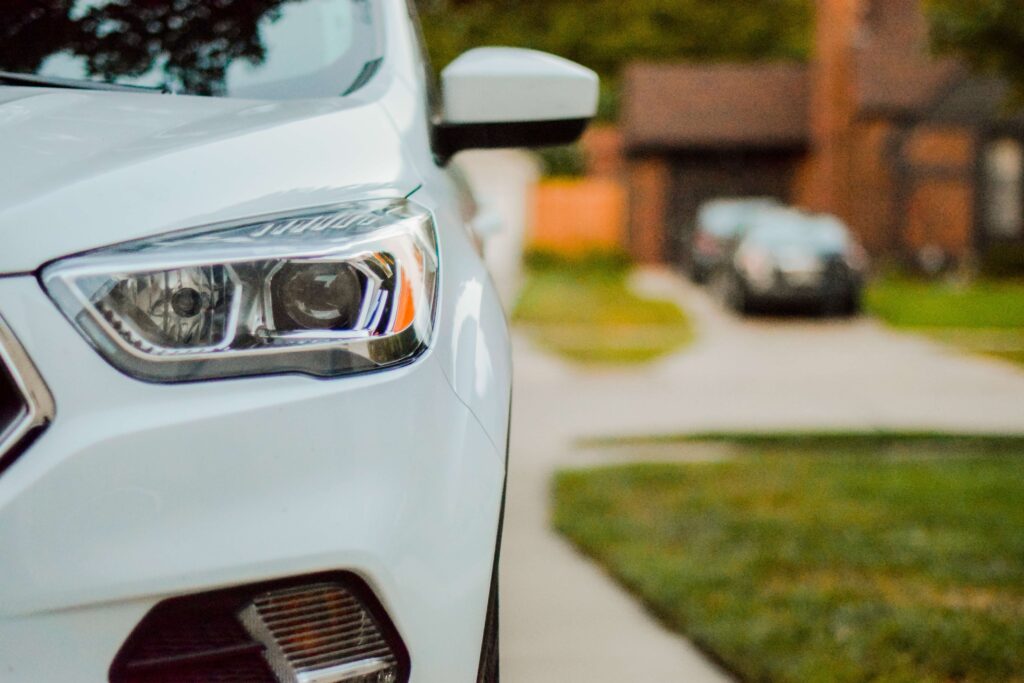Home » Car insurance » By Vehicle » Leased cars
Car leasing is a popular option for people looking to upgrade their vehicles without the long-term commitment that comes with buying. Leasing usually comes with lower monthly payments than financing, and it allows you to drive a brand-new car every few years without the stress of selling your old car to make room for the new one.
While leasing may give you more freedom, you still need to make sure you’re getting the right car insurance for your lease. Here’s what you need to know about getting car insurance on a lease, including what types of insurance are required and how much it costs.

What does it cost to insure my vehicle?

"*" indicates required fields
Most leasing companies require you to have full coverage car insurance for your leased vehicle. A full coverage car insurance policy usually includes the following coverages:
Think of your lease as renting the vehicle from the lender. Because you return the vehicle to the lender when the lease is up, you will sign an agreement that outlines the rules the lender has for your lease, including conditions such as a limit of the miles you put on the vehicle during the lease period, mandatory regular maintenance, and even insurance requirements.
If you’re considering leasing a car, it’s important to understand the insurance requirements. Drivers who lease their cars usually need to have a full coverage car insurance policy. A full coverage policy protects the vehicle against physical damage, which is less risky to the lender in case you get into an accident or the car gets stolen.
On the other hand, drivers who own their cars are typically only required to have a minimum coverage insurance policy. Minimum coverage insurance varies by state, but most states require liability coverage for property damage and bodily injury. Some states also require UM/UIM and PIP.


"*" indicates required fields
Gap insurance covers the difference between the current value of your leased car and what you owe on the car if the vehicle gets totaled. For example, if your car is totaled or stolen and what you owe on the lease is greater than the car’s value, gap insurance for a leased car will pay the difference.
Gap insurance is often, but not always, required for a leased car. However, even if it’s not required, having gap insurance can give you peace of mind and financial protection for a relatively low cost in the event of an accident or theft.
Is it more expensive to insure a leased car?
Insurance premiums for a leased car can be more expensive than premiums for a car you own outright for two reasons:
However, insurance premiums for the same vehicle at the same policy limits will be the same regardless of if the vehicle is leased or owned.
The cost of car insurance for a leased vehicle will vary depending on several factors, such as:
While the cost is different for everyone, the average cost of full coverage car insurance in the U.S. is around $1,588 for all vehicle types. The average premium for medium-sized sedans is $1,694 and the average premium for medium-sized SUVs is $1,529.
One of the best ways to find an affordable insurance policy for your leased car is to get quotes from several insurance companies. Comparing rates can help you identify which company will give you the best coverage at the most affordable price.
Take our short quiz to see how much you can expect to pay to insure your leased car >
Personalized rate estimates at the top insurance companies in your state
Your rates will vary based on where you live, your age, and other factors like your driving record
Car insurance premiums are personalized for each driver based on unique factors. However, there are some factors – like your age or traffic violations on your record – that you can’t change easily. But that doesn’t mean getting cheaper car insurance for your leased car isn’t possible. Here are a few ways to reduce your car insurance premiums:
Take our short quiz to see how much you can expect to pay to insure your leased car.
Only tell us about factors that have the biggest impact on your rates. No email or phone number required.
We match you with top insurance companies and estimate how much you will pay at each.
Compare rates side-by-side to find the best rate for the right coverage.
Car leasing doesn’t include car insurance. Leasing companies will require you to have a separate car insurance policy to protect the vehicle, and this payment is separate from your monthly lease payments.
The lessee pays for the car insurance on a leased car. Additionally, a car leasing company will usually require you to maintain a full coverage policy throughout your lease term.
Yes, car insurance is a requirement to lease a car. Auto insurance is a legal requirement in most states, whether you lease, own, or finance the vehicle. You won’t be able to lease a car without getting a car insurance policy first.

Dig up the best insurance providers in seconds
"*" indicates required fields
Copyright © Rate Retriever Insurance Services LLC, a wholly-owned subsidiary of Soleo Communications, Inc. 2025. All Rights Reserved. Use of Rate Retriever’s services is subject to our Privacy Policy, Disclaimer, and Terms and Conditions. Do Not Sell My Personal Info. Accessibility statement. Cookie policy.